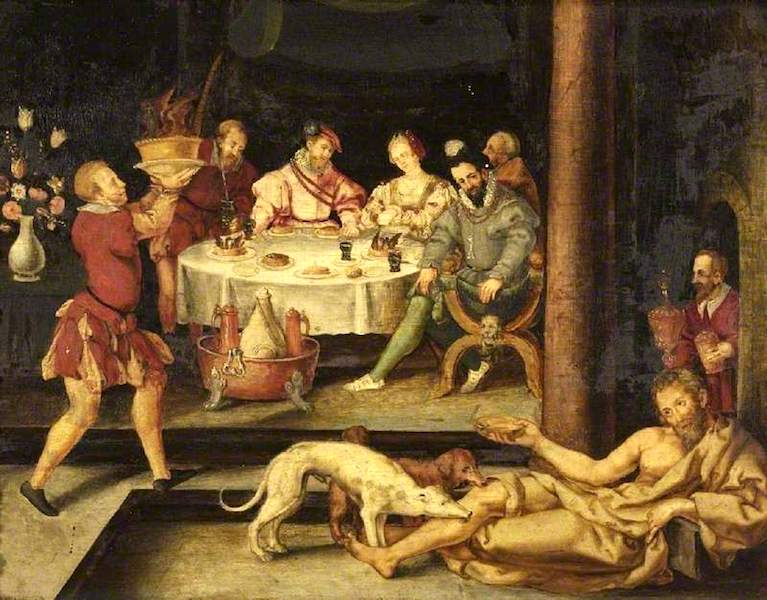Puah and Shiphrah do not feature in any list of Bible’s biggest characters. They don’t get nearly as much mention on pulpits as does Jabez, one about whom much less is known. There are no books dedicated to them as we have for Ruth, no holy days to commemorate their courage as is done for Esther.

However, within the seven verses in which their acts were recorded, they did enough to influence the debate on faith and righteousness.
Puah and Shiphrah [1]Exodus 1:15-21 were Hebrew midwives in Pharaoh’s Egypt. As with the Hebrews of their time, the God of Abraham had become an unknown quantity. They had well and truly assimilated the Egyptian culture and largely given to idolatry [2]Joshua 24:23. If they did any good, it wasn’t about keeping faith with covenant obligations. The law had not been given.
When Pharaoh enlisted their expertise for urgent, strategic, demographic emergency, (to wit: smother all Hebrew new-born males) it would have meant a rare moment of privilege. A royal commission is always a rare opportunity to ingratiate one’s self with the human face of the gods, more so if one belonged to a servile race.
Puah and Shiphrah chose to ‘fear God’!
Doeg the Edomite, for instance, didn’t struggle with his conscience when King Saul asked anyone to kill God’s priests. In a short moment Doeg turned a priestly commune into an abattoir. [3]1Samuel 22:17-19 Herod’s soldiers didn’t challenge the order to commit infanticide. [4]Matthew 2:16-18 Why would one allow conscience to get in the way of a royal cause or an opportunity for upward mobility?
In fact, there were times when such attack of conscience could be suicidal. Kings did not entertain situations that could encourage others to resist royal prerogatives. It was always either the King’s way or the guillotine. [5]Daniel 3:1-6 Most people tended to prefer the former. Puah and Shiphrah chose differently. As scripture recalls, they chose to ‘fear God’! [6]Exodus 1:17
We could write pages about their foolhardiness, or courage, ethics or conscience; but if we were to comment on their faith, we would struggle.
Faith is an article of spiritual contract. Contracts require two or more parties. There was no such contract between the Hebrews and God, until Moses mediated one at Sinai. Before Sinai, Moses, the first Hebrew of that generation to encounter Yahweh, asked to verify God’s ID, not for his satisfaction only, but for all the Hebrews to whom he was summoned to sell this God. Reason was, they did not know God. There was no platform upon which to build a relationship with God. What would later morph into Judaism had not been born.
However, Puah and Shiphrah had godliness coursing through their beings, as do most non-faith people today. Their story is an instance of godliness without religion. Of such St Paul wrote:
“For when the Gentiles, which have not the law, do by nature the things contained in the law, these, having not the law, are a law unto themselves: Which shew the work of the law written in their hearts, their conscience also bearing witness… [7]Romans 2:14-15
They might not have known much much about God, but knew enough to refuse to murder. They knew enough to choose the path of goodness, even if it meant offending the gods of Egypt. They did not do it to be poster ladies for any faith. They were no plenipotentiaries of any religion, faith group or heaven. They did not do it to inherit some eternal, gold-plated, mansion, founded on precious stones, far, far, up some bluish nebula. They were just two decent, God-fearing, non-faith women who set an example too wonderful for most of us religious lot to appreciate.
Puah and Shiphrah had godliness coursing through their beings, as do most non-faith people today. Their story is an instance of godliness without religion.
There are times when scriptures invite us to decide for ourselves the moral of the stories we read: Should Esther have employed pogrom to overcome pogrom? Was Abigail a wise woman or a self-interested, ambitious betrayer of the marriage sacrament? Was Joseph the saviour of Egypt or a royal stooge? Ought Daniel have done more with his political connections to leverage the rebuilding of Jerusalem, (as did Nehemiah) rather than just saying a prayer? In such cases, God invites us to wrestle with scripture.
But not with Puah and Shiphrah. There was an instant divine reaction to their godliness:
“Therefore God dealt well with the midwives: and the people multiplied, and waxed very mighty. And it came to pass, because the midwives feared God, that he made them houses.” [8]Exodus 1:20-21
If I might be bold enough to translate God’s reaction to words, I’d go something like:
- Not all our righteousness are filthy rags before God. Isaiah only spoke contextually [9]Isaiah 64 6
- You do not need adherence to any faith or religion to please God [10]Acts 10:34-35
On second thoughts, God does not need my help to translate His reaction to words. By the prophet Micah God juxtaposed the trappings of religion with the sort of disposition seen in the midwives and left no one in doubt as to what mattered:
“Wherewith shall I come before the LORD, and bow myself before the high God? shall I come before him with burnt offerings, with calves of a year old? Will the LORD be pleased with thousands of rams, or with ten thousands of rivers of oil? shall I give my firstborn for my transgression, the fruit of my body for the sin of my soul?
“He hath shewed thee, O man, what is good; and what doth the LORD require of thee, but to do justly, and to love mercy, and to walk humbly with thy God? [11]Micah 6:6-8
St James the Just put a fine point on this in his epistle general. As far as he was concerned what the midwives did exemplified the highest standards of service to God. He wrote:
“Pure religion and undefiled before God and the Father is this, to visit the fatherless and widows in their affliction, and to keep himself unspotted from the world.” [12]James 1:27
He went on to teach that faith is lived out in acts that heal, redeem, save and strengthen. [13]James 2:14-24
Prophet Isaiah teaches that when relations between Heaven and Earth have gone pear-shaped, prayer and sacrifices are not the answer, reaching out to outcasts, the impoverished, and the afflicted can bring healing to our relationship with God. [14]Isaiah 58:1-14 God desires mercy and not sacrifice. [15]Hosea 6:6
The notion that God sent us to the world solely to earn the privilege of returning to heaven is laughable.
Organised religions have these days cast a yoke upon the cause of heaven. Stuff are done in the name of God, sometimes by ‘assemblies of the righteous’, too unholy to name. Church auditoriums are growing larger while their foundations grow shallower. They say Jesus has done it all, therefore nothing left to do other than claiming it all.
Yet all around us are poverty, lack, deprivation, diseases, destitution, homelessness, fear, hopelessness and huge breaches in the world of God crying out for healing. St Paul wrote that we are co-workers with God for the important task of healing those breaches. The notion that God sent us to the world solely to earn the privilege of returning to heaven is laughable. The post God created was that of an estate manager [16]Genesis 2:5
An army drawn largely from secular non-governmental institutions are battling these socio-economic and cultural malaise daily in Africa, the Middle East, South Asia and South America while much of the Church of our Lord Jesus Christ are either pre-occupied with earning a place in heaven or acquiring private jets. The story of Puah and Shiphrah stand as an indictment of both ‘pie in the sky’ and prosperity theologies. God sent us to this world because there’s much work to do in this world.


